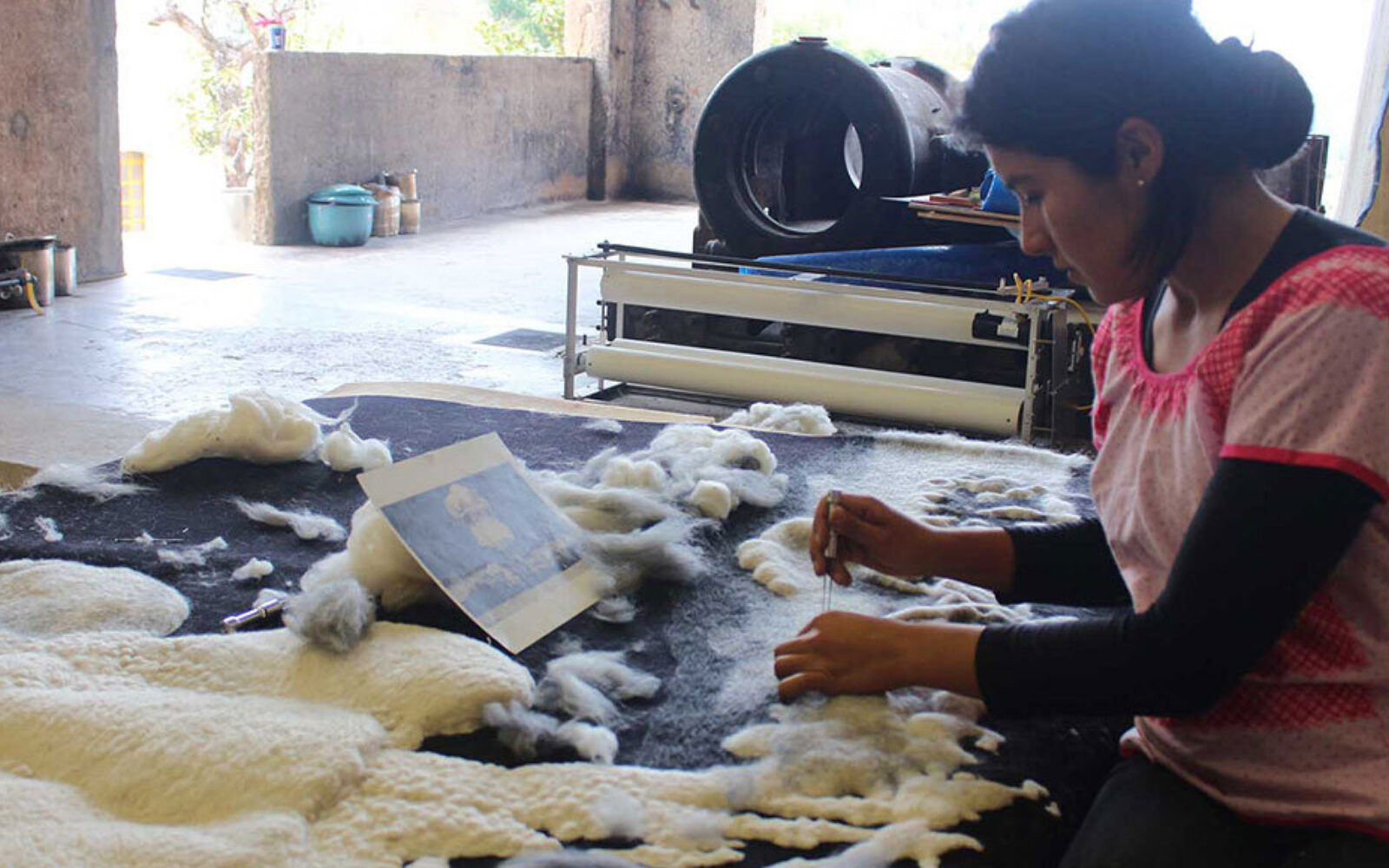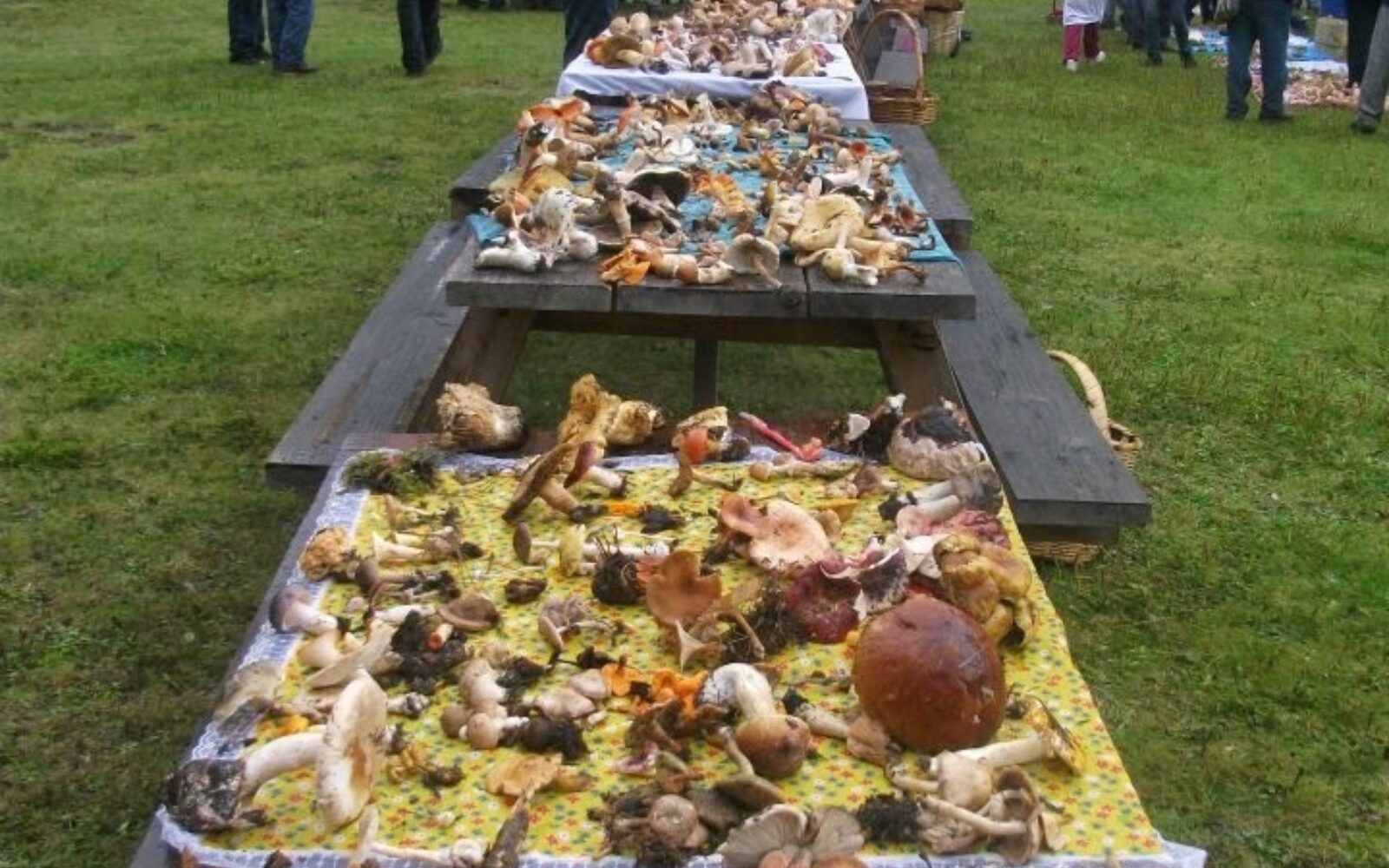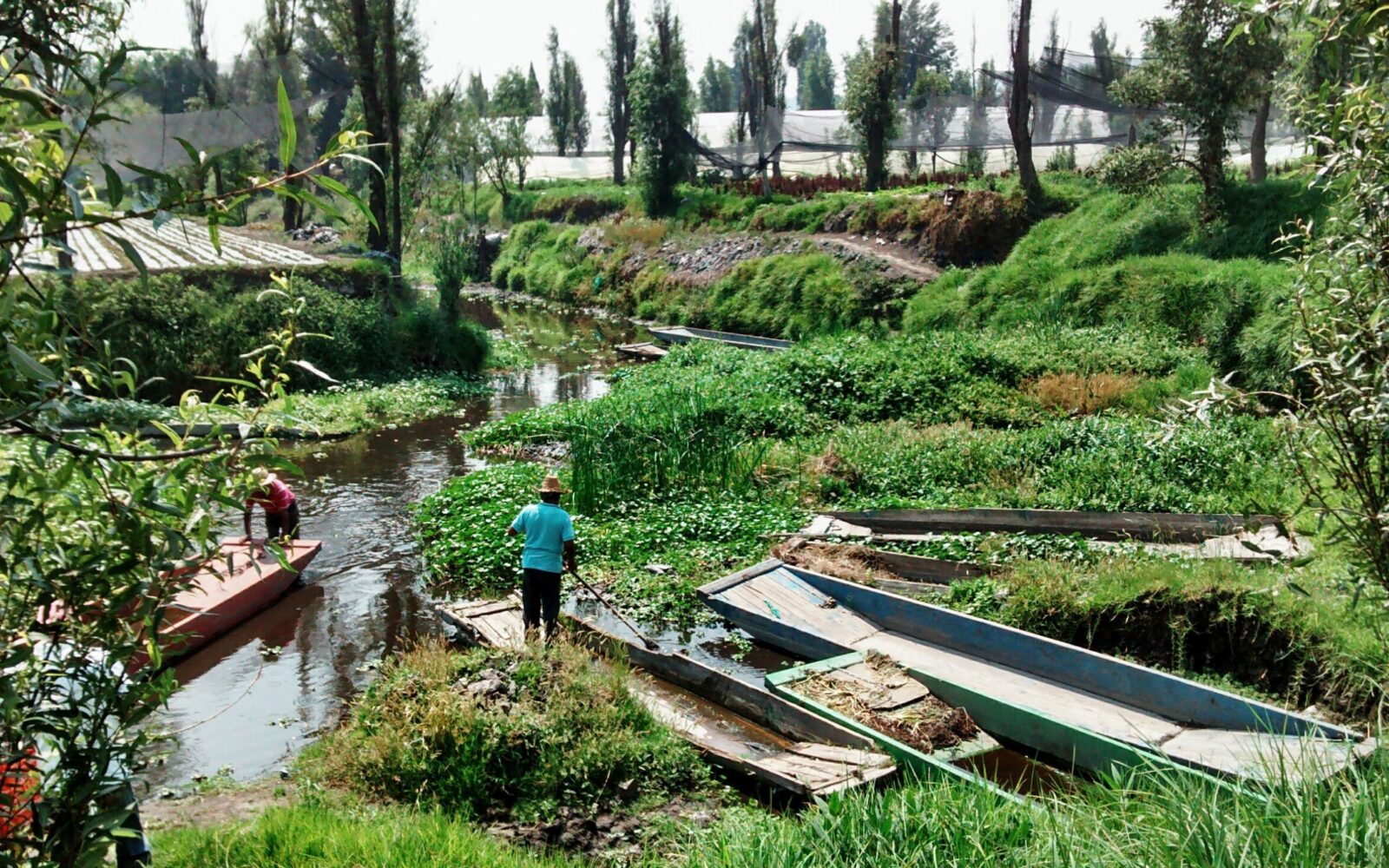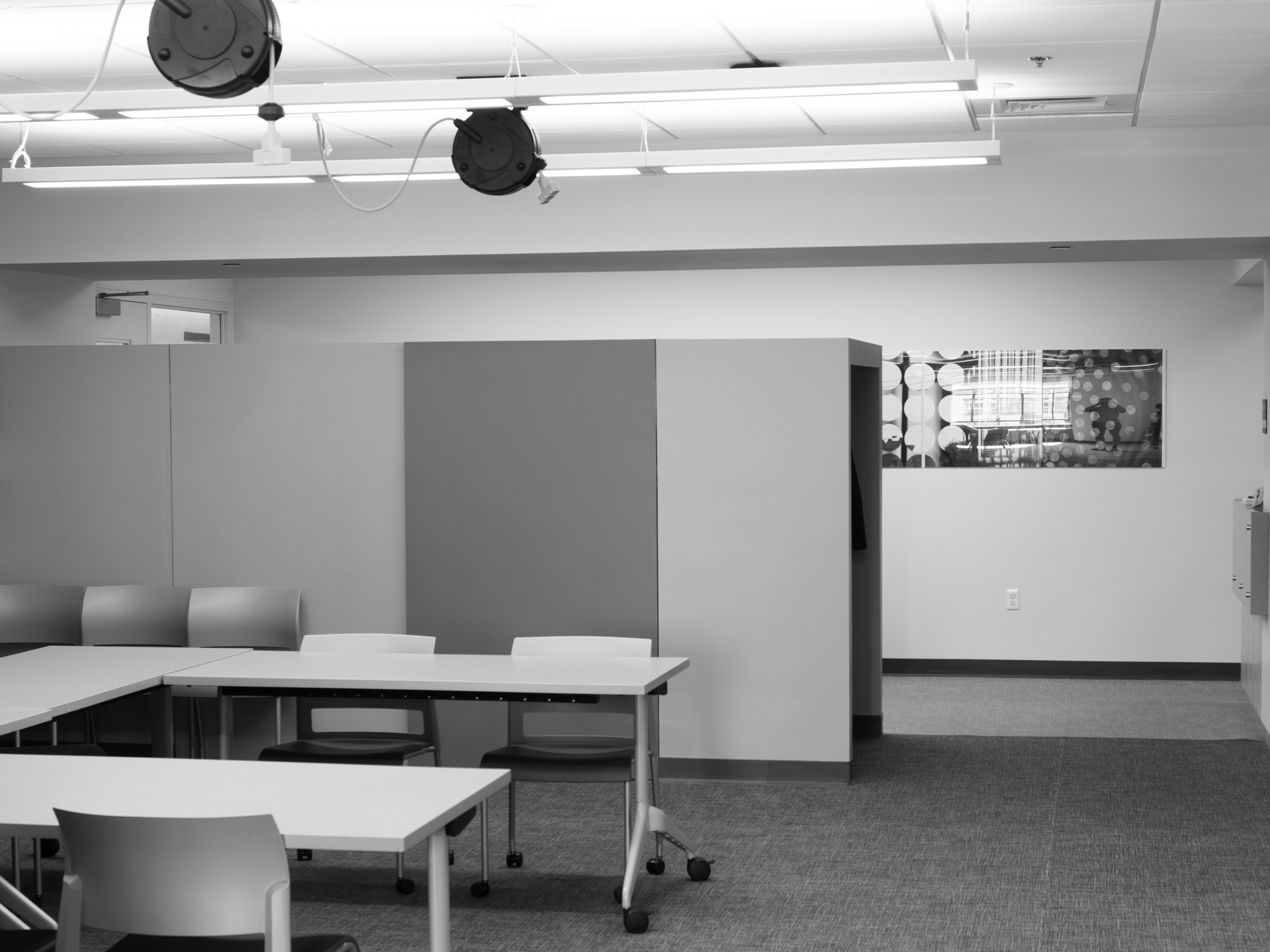What
ProgramsWhere
When
Summer 2023
Course Dates: Jun 11, 2023 — Jul 3, 2023
Who
Open to RISD students, Brown University students, non-RISD students2.5 GPA required. Non-RISD participants see eligibility requirements below.
This course will take students to Mexico City, San Miguel de Allende, and Oaxaca City to meet a vast array of collective and collaborative projects: art workshops and studios, interdisciplinary research projects, food sovereignty initiatives, ecotourist centers, and self-governed communities. From different social, political and ecological approaches, these projects seek to maintain or repair the connection of human beings with their land and territory. The course also aims at making visible the challenges that globalization, gentrification (including international), violence, corruption, and migration bring to the inhabitants of these Mexican cities (as well as many others in Latin America).
This course has reached maximum capacity.
Course Dates: Jun 11, 2023 — Jul 3, 2023
2.5 GPA required. Non-RISD participants see eligibility requirements below.
Included tuition, accommodation, studio space, in-country transportation, field trips, entrance fees, some group meals and international travel health insurance.



This course will take students to Mexico City, San Miguel de Allende, and Oaxaca City to meet a vast array of collective and collaborative projects: art workshops and studios, interdisciplinary research projects, food sovereignty initiatives, ecotourist centers, and self-governed communities. From different social, political and ecological approaches, these projects seek to maintain or repair the connection of human beings with their land and territory. The course also aims at making visible the challenges that globalization, gentrification (including international), violence, corruption, and migration bring to the inhabitants of these Mexican cities (as well as many others in Latin America). This dialectic intends to generate a critical reflection on how the coloniality of power (Quijano, 2000) still operates in the post-colony, and a non-romanticized but solidarity consideration of collective/collaborative projects.
The legacies of European colonialism have profoundly marginalized knowledges/epistemologies from the global South. But the catastrophic effects that neoliberal/capitalist/imperialist modes-of-living have brought to humans and nonhumans alike–climate change, scarcity of water, deforestation, displacement, exploitation, etc.–are desperately making the West turn its attention to resilient knowledges that value reciprocity/solidary/conviviality. How can we make sure that this approach to the global South isn’t, once again, an exploitative one?
Through walking, mapping and sensing with sound, students will approach Mexico City’s complex history and relationship to water: from the mythic foundation of Tenochtitlán (capital of the Mexica Empire) on a lake, to the piping of most of the city’s rivers due to (outrageous) governmental mandates, to its current water crisis. They will also learn first-hand from collective projects that aim at investigating and revitalizing the iconic Texcoco Lake, the Chapultepec Lakes and the Xochimilco Canals. In San Miguel de Allende, students will learn from a collective of artists that use technology to create tools to meaningfully connect with the nonhuman and to help the land heal. In Oaxaca City, students will have the opportunity to listen and work with artists/master weavers and potters, who, for generations, have been literally “taking soil in their hands” to fabricate natural dyes, clays and highly symbolic textiles and pottery–anti-colonial artifacts for memory-making that preserve their culture. Students will also learn about the wonders of mushrooms and agaves, and the ancient relationships that inhabitants of Cuajimoloyas and Minatitlan have, respectively, with them.
Walking, talking, researching and making together, students will try to address the following questions: Can art + research help us shape a connection to our land that is not based on capital or exploitation, but on collaboration and mutual aid? Can art become a legitimate form of sensorial research that facilitates our understanding and communication with each other and the nonhuman? Can we step outside of the Western canon and deconstruct our perception/understanding of the world around us? Can we open up to other epistemologies that dislocate our individualized beings for the sake of collectivity? Can we recognize and confront our multiple, complex and problematic roles in structures of power and oppression?
Through an experiential overview of collaborative projects that shape Mexico’s contemporary cultural, political and artistic landscape, students will reflect on their own connections to their territories and identities. They will collectively consider if/how conviviality and solidary can separate humans from the logic of market-ridden greed and individualism (Santos, 2020), or if this is a romanticized perception of epistemologies of the South. The encounters with people and their territories, cultures and projects, are meant to be, not only informative, but sensorial, affective, critical and transformative.
Students will learn about Mexico’s history and current problems. They will also reflect on binational (US-Mexico), hemispheric (across the Americas) and global relations and issues. Themes to be addressed include, but are not limited to: uneven migration policies, transborder gentrification, imperialist exploitation of land and labor, environmental injustice, and Indigenous sovereignty.
Students will also gain maker skills associated to: pottery, wool dying, needle felting, sound recording and editing, intermedia art and art + technology. They will also have an experiential approach to different interdisciplinary methods to generate research-based art.
They will also get acquainted with Mexican contemporary art and history though visits to museums, artists’ studios, and archeological sites. They will also experience Mexican culture in markets, restaurants, food stands, bars, dancing clubs, etc.
To participate in RISD Global Summer Studies, all students are required to stay in RISD- provided housing for the duration of the course.
If your current cumulative GPA is 2.5 or above, you are eligible for registration. If your current cumulative GPA is lower than 2.5, you must first contact the Registrar at registrar@risd.edu to seek exception to this academic policy.
If you are a college student currently enrolled in another art/design college or institution around the world, or a professional practicing in the field, you are eligible for registration. We will collect a recommendation/support form from your institution/workplace.
In order to register for RISD Global summer studies, you are expected to have a high level of English (speech, writing, and comprehension) as all coursework and critique is delivered in English.
Global Summer Studies are three weeks long and take place in June/July, and you are required to attend all program activities scheduled during the travel course. RISD Global Summer Studies comply with RISD class attendance policy. In case of unexcused or multiple absences, you may be removed from the course, given a grade of “W" (withdrawal) or a grade of “F” (fail).
Requesting to withdraw from a RISD off-campus global learning program, including RISD Global Summer Studies, prior to the start of the course is highly discouraged and requires a formal process outlined in the RISD course withdrawal policy. It is not possible for a student to drop a RISD Global Summer Studies travel course via the standard Add/Drop process after it has commenced. In the case of unforeseen and extenuating circumstances (and only after students have spoken with the faculty lead and RISD Global for approval to withdraw from the program), students should be aware that no refund will be issued.
In order to reserve a seat, a non-refundable deposit of $500 is required at the time of application submittal. Students who apply before March 31st will have until April 1, 2023, to submit full payment, and new application submissions starting April 1 must make full payment by April 14, 2023. Students that fail to make full payment by their deadline will forfeit their $500 deposit and their seat in the course.
All RISD students enrolled in RISD and other full degree schools/universities are required to remain in good academic standing in order to participate in Global Summer Studies. A minimum GPA of 2.5 is required for all students. Failure to remain in good academic standing can lead to removal from the course, either before or during the course.
In cases where summer travel courses and studios do not reach full capacity, the course may be canceled after the last day of registration. As such, all students are advised not to purchase flights for participation in Global Summer Studies courses until the course is confirmed.
The scholarship application for Global Summer Studies 2026 will open on December 19, 2026 at 9:00 AM and close on January 21, 2026 at 11:59 PM.
The Global Summer Studies 2026 course application will open on February 02, 2026 at 7:00 PM and close on March 15, 2026 at 11:59 PM.
View detailsIncreasing financial aid is a central pillar of RISD’s equity, inclusion and diversity commitment. Through partnership with other campus offices, we are working to provide greater support and access to students interested in pursuing global learning experiences at RISD.
View details
Have questions? The RISD Global team is available to meet for a 1:1 advising session. We can give you more information about your study options, help you figure out which program makes sense for you, and assist you with the application process.
Schedule an AppointmentNo announcements for this program.